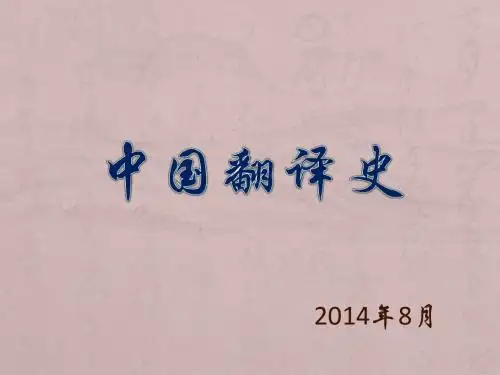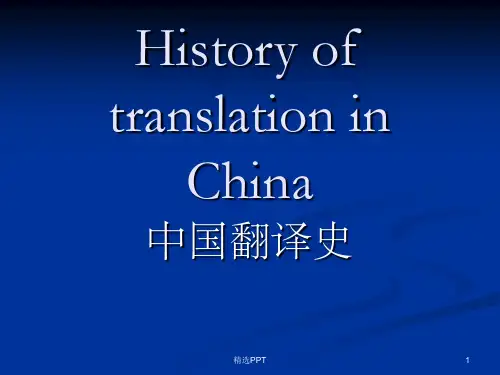历史学相关专业学术翻译的PPT教学课件
- 格式:ppt
- 大小:95.00 KB
- 文档页数:4
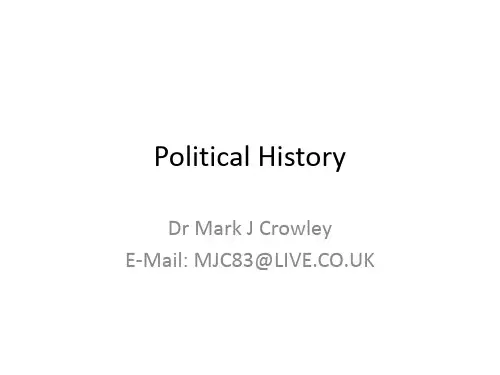
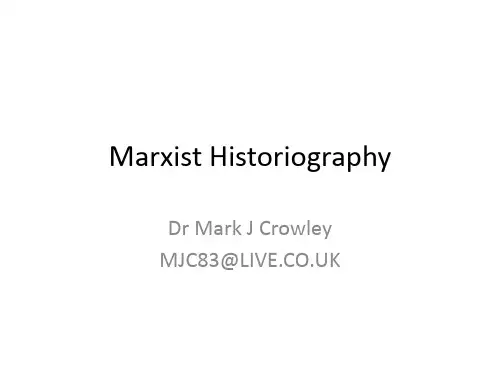
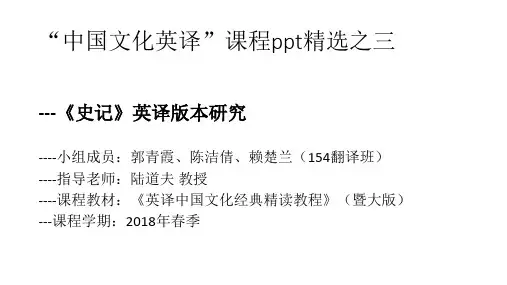
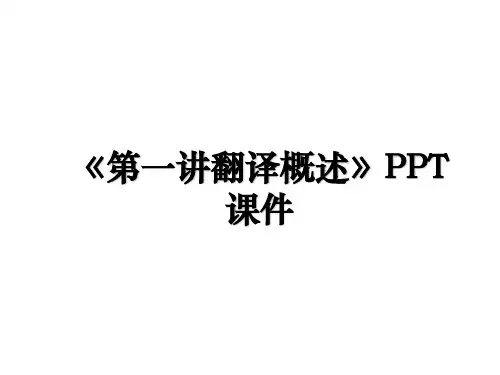

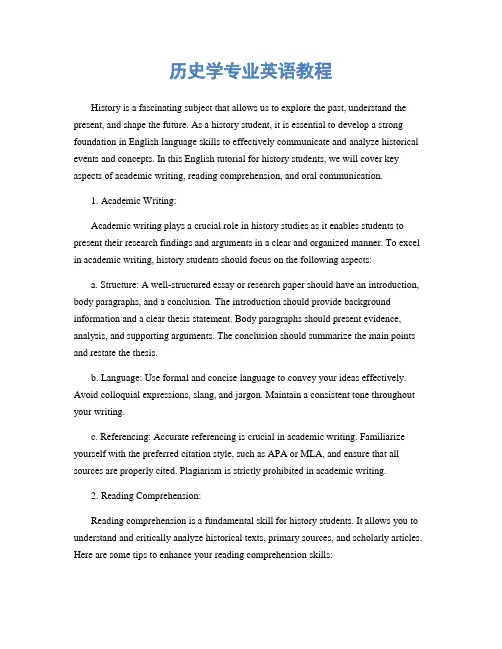
历史学专业英语教程History is a fascinating subject that allows us to explore the past, understand the present, and shape the future. As a history student, it is essential to develop a strong foundation in English language skills to effectively communicate and analyze historical events and concepts. In this English tutorial for history students, we will cover key aspects of academic writing, reading comprehension, and oral communication.1. Academic Writing:Academic writing plays a crucial role in history studies as it enables students to present their research findings and arguments in a clear and organized manner. To excel in academic writing, history students should focus on the following aspects:a. Structure: A well-structured essay or research paper should have an introduction, body paragraphs, and a conclusion. The introduction should provide background information and a clear thesis statement. Body paragraphs should present evidence, analysis, and supporting arguments. The conclusion should summarize the main points and restate the thesis.b. Language: Use formal and concise language to convey your ideas effectively. Avoid colloquial expressions, slang, and jargon. Maintain a consistent tone throughout your writing.c. Referencing: Accurate referencing is crucial in academic writing. Familiarize yourself with the preferred citation style, such as APA or MLA, and ensure that all sources are properly cited. Plagiarism is strictly prohibited in academic writing.2. Reading Comprehension:Reading comprehension is a fundamental skill for history students. It allows you to understand and critically analyze historical texts, primary sources, and scholarly articles. Here are some tips to enhance your reading comprehension skills:a. Preview: Before reading a text, skim through the headings, subheadings, and introductory paragraphs to get an overview of the content. This will help you identify the main ideas and anticipate the author's arguments.b. Active Reading: While reading, actively engage with the text by highlighting important points, taking notes, and asking questions. This will help you retain information and facilitate critical thinking.c. Analyze: After reading, analyze the author's arguments, evidence, and biases. Consider the historical context and evaluate the credibility of the source. Compare different perspectives to develop a well-rounded understanding.3. Oral Communication:Oral communication skills are essential for history students, as they often need to present their research findings, participate in discussions, and engage in debates. Here are some strategies to improve your oral communication skills:a. Preparation: Before a presentation or discussion, thoroughly research the topic and organize your thoughts. Prepare a clear and concise outline to guide your speech.b. Clarity: Speak clearly and articulate your words. Use appropriate vocabulary and avoid excessive jargon. Maintain eye contact with your audience and use gestures to enhance your communication.c. Active Listening: Active listening is crucial in oral communication. Pay attention to others' viewpoints, ask questions, and provide thoughtful responses. Engage in constructive discussions and be open to different perspectives.In conclusion, mastering English language skills is essential for history students to excel in their academic pursuits. By focusing on academic writing, reading comprehension, and oral communication, students can effectively communicate their research findings, analyze historical texts, and actively participate in academic discussions. With consistent practice and dedication, history students can develop astrong foundation in English language skills and enhance their overall academic performance.。

